Biking safely: How to campaign for safer cycling
If you’ve ever cycled with your children, you’ve probably encountered a lack of safe infrastructure. Or perhaps that's the reason why you've never tried cycling with kids.
Whether it’s barriers on paths that force you to lift a trailer over a fence, or your kids cycling on the pavement because the road feels unsafe, this is all too common. If this has happened to you and you want to do something about it, you’ve come to the right place, because we’re going to tell you everything you need to know about how to campaign for safer cycling in your area.
Everyone on the Cycle Sprog team is involved in campaigning to improve cycling for others. That includes sitting through countless council meetings, signing petitions, responding to consultations, running cycling groups, and organising Kidical Mass rides. Read more on why kids cycling to school shouldn’t be rocket science.
In this article, we’ve listed different ways to get involved, starting with options that take just a few minutes, because we know how busy life can be.

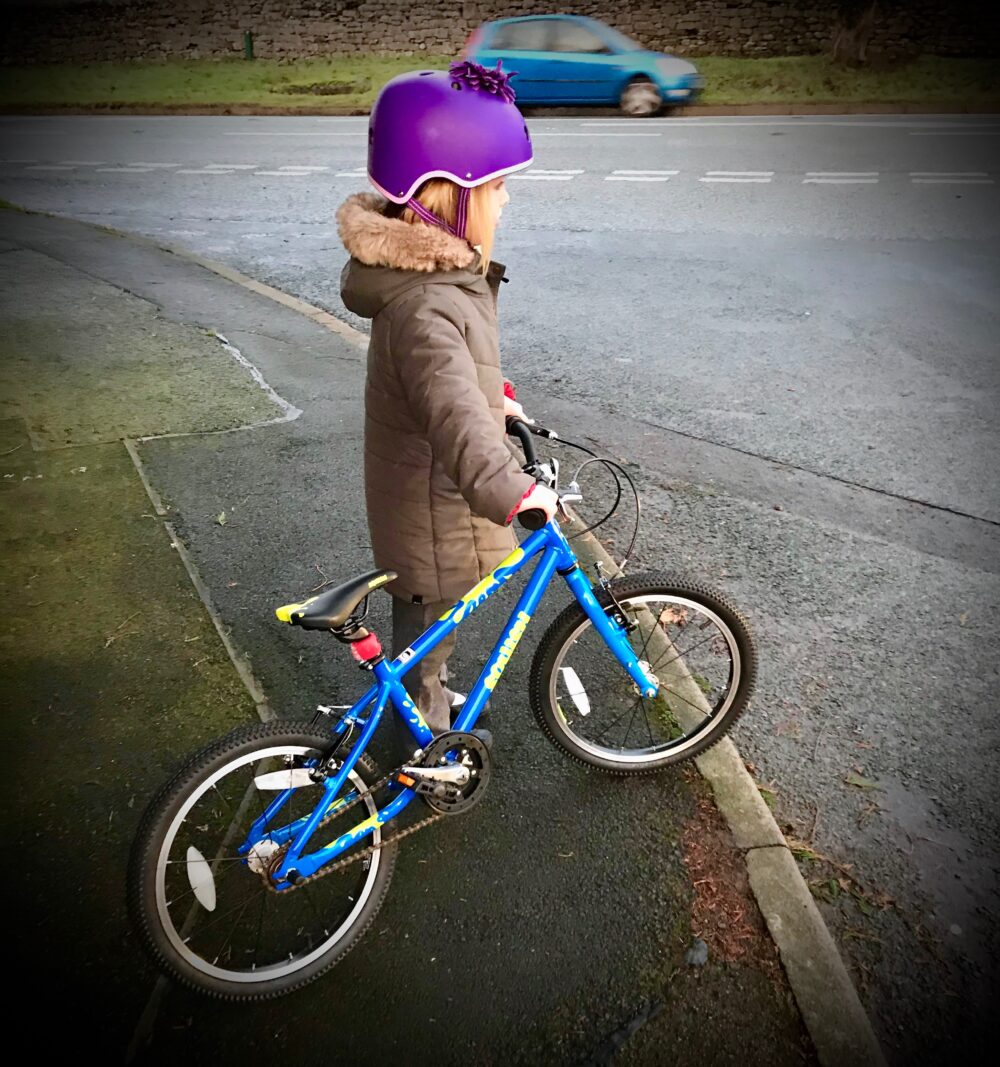
Got 5–10 minutes?
Write to your local councillors and MP
Writing an email to your local councillors and MP doesn’t have to take a lot of time, but it can make a big difference in their decision-making.
Top tip: Write about your real-life experience and be as specific as you can. If you’re worried about a particular junction because you cross it with your toddler in a trailer every day, tell them exactly what the problem is.
Find your local councillors and MP on writetothem.com and send them an email.
These are some of the things you could mention in your email:
- Your daily experience of cycling and why you and your children like cycling
- Your struggles when cycling
- Ideas on how to improve the situation
- Any relevant climate emergency or net zero emissions policies your council or local MP has signed up to or implemented
- Invite them to meet with you so you can show them the issues you’re experiencing
Local councillors oversee local cycling infrastructure, while MPs can influence national policy and funding. After you’ve written to them, follow up, invite them to meet you on your cycle route, and don’t back down.
It’s also worth learning a bit about how your local government works and where decisions on transport are taken. More on that later.
If you've got elections coming up in your local area, find out how to quiz candidates in our guide on Local elections - ask candidates about cycling.
Join your local active travel campaign
There’s probably a group of people campaigning for better cycling infrastructure near you already.
- Do a quick search for “your town + cycling campaign” or “walk ride + your town.”
- Try searching on social media platforms too.
- Some local campaigns offer membership, but most are happy for new supporters to get involved.
Cycling UK runs a Cycle Advocacy Network which is also a good place to start.
Go to a meeting if they’re holding them or send them a message to find out how you can help.
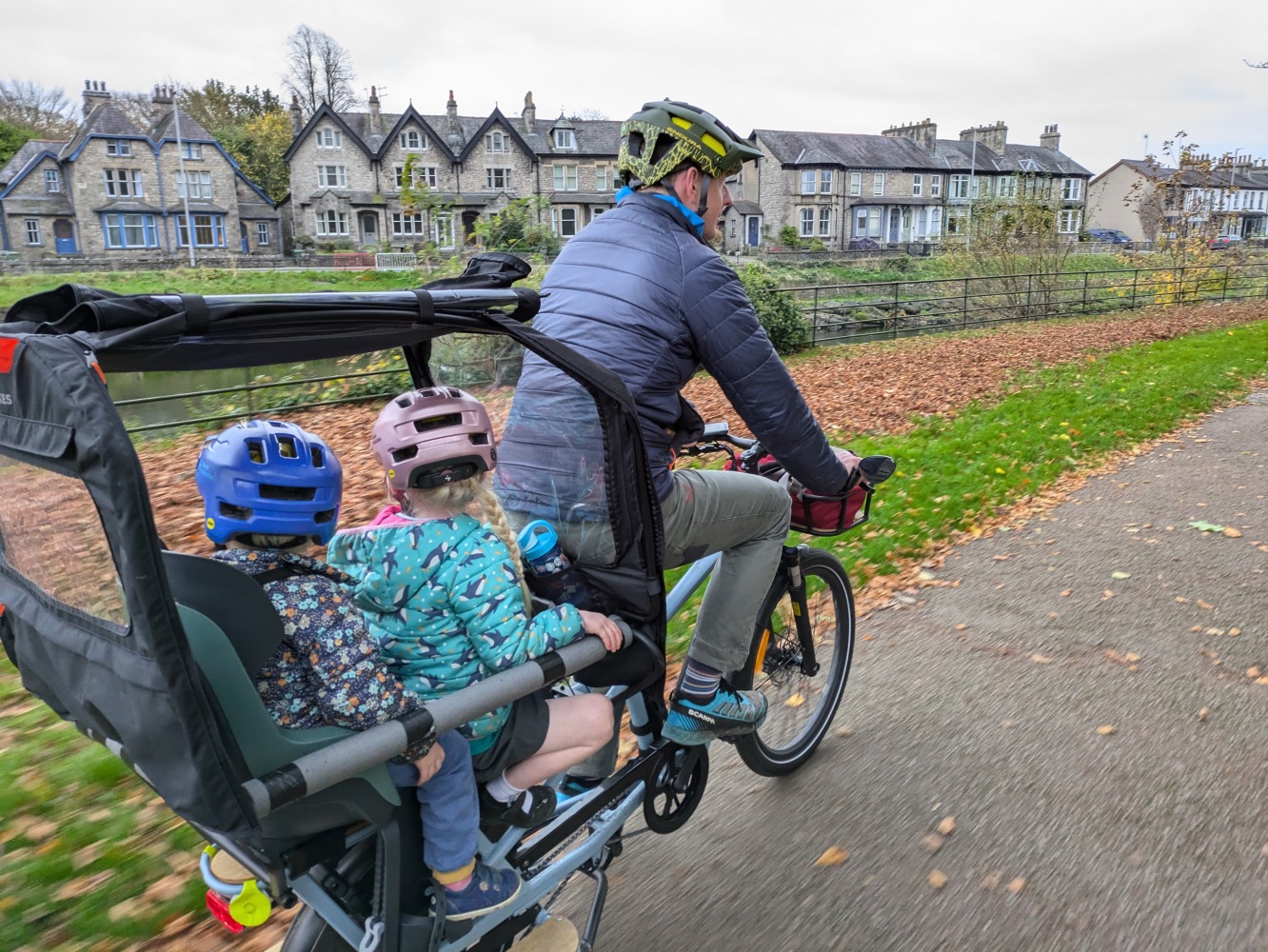
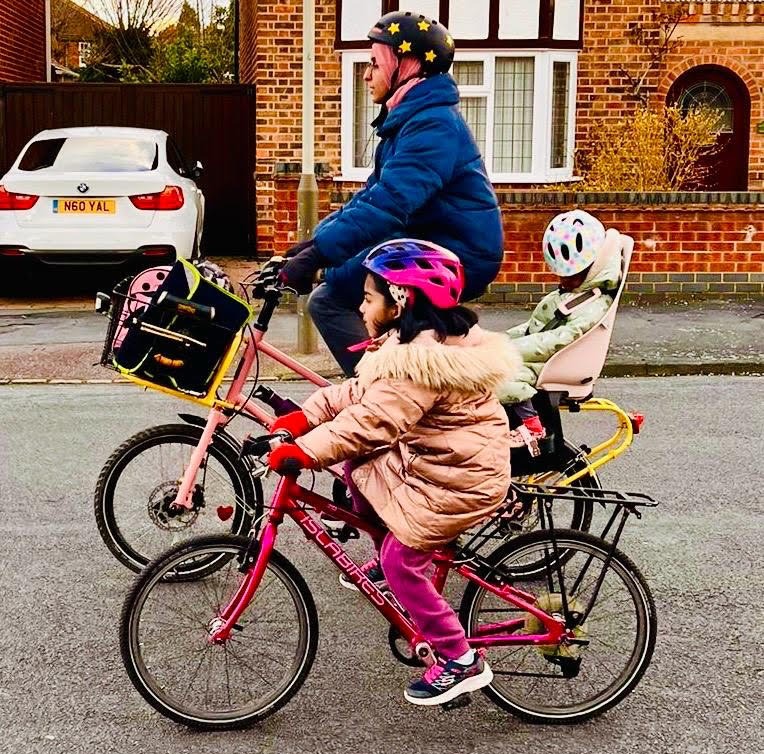
Got 15 minutes to an hour?
Find out how local government works
Local government structures vary depending on where you are - there might be county, district, borough, or city councils, and some areas have combined regional authorities.
You don’t need to know all the details, but learning the basics about how decisions on transport are made will go a long way.
Speak at a council meeting
Most councils allow members of the public to speak for a few minutes at the start of full council or committee meetings.
Children are usually allowed to speak too, which can be an excellent way for them to tell local politicians how they feel about their route to school.
Saskia, our content editor, says:
“I have spoken at full council meetings and my then 6-year-old has too (I asked for her not to be filmed for privacy reasons). She wrote the statement herself - it was about the need for protected cycle lanes to ride the 1.5 miles into town.”
Encourage underrepresented voices
Women and other underrepresented groups in cycling sometimes think they’re not experts and that other people will be better at speaking on the subject. But you do know your stuff from daily experience, so speak up and encourage others to do the same, especially those from seldom-heard groups. It is very likely your local decision-makers think everyone who cycles is a middle-aged man in Lycra.
Celebrate the wins
Don’t just complain - also celebrate the good stuff. This could be a cycle ride to mark a new bit of infrastructure or an email to thank your councillors for the removal of a barrier.
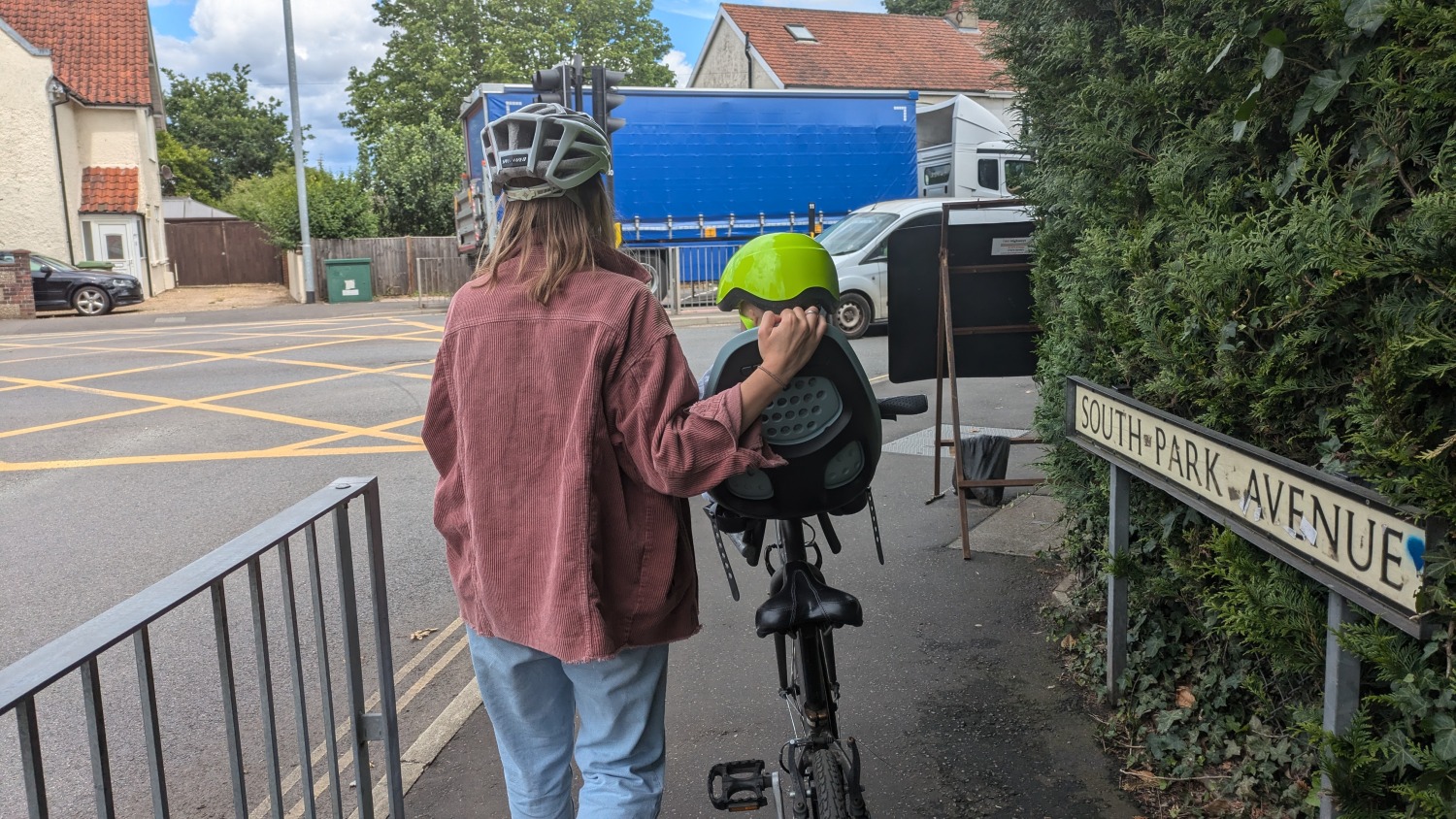
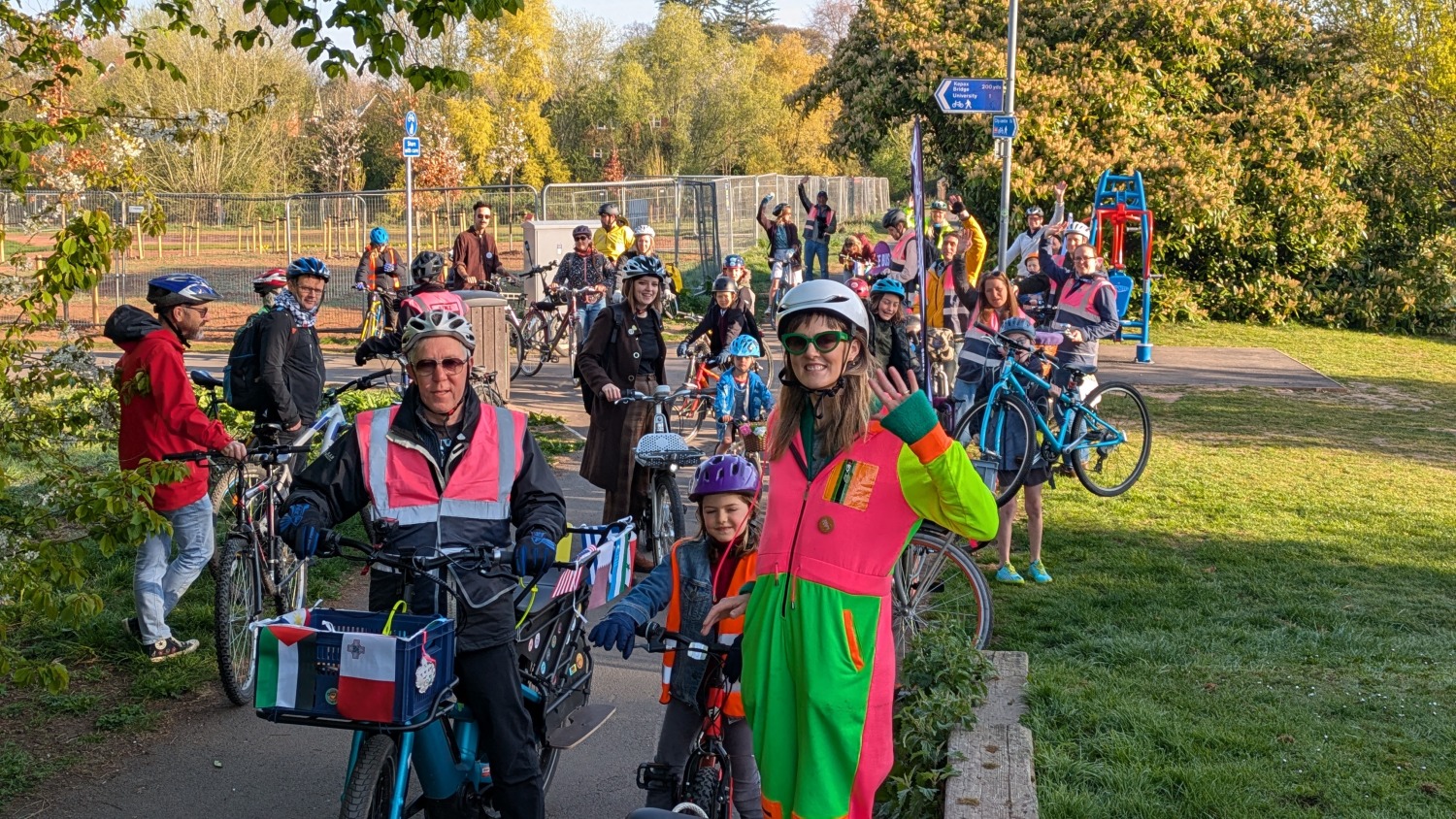
Got more time to spare?
Join or start a longer-term campaign
If you’re keen to get involved in a longer-term campaign, then join an existing one or set one up yourself. You could take on a tangible project like:
- Campaigning for a School Street
- Applying for funding to install more bike stands
- Organising a Kidical Mass or Bike Bus
Mums for Lungs is a good starting point for information on the benefits of School Streets and guidance on how to campaign for a School Street.
Reach out to the media
Contacting the media can give your campaign a much bigger platform. Writing to decision-makers in combination with getting coverage in your local paper, on TV, or on the radio is powerful and will help your message reach more people.
Be creative and offer journalists a good hook - like a Kidical Mass ride, a petition launch, or a local success story. Photos and human interest stories work well, especially when they involve families and children.
Become a school governor
Becoming a school governor can be an excellent way to work with the school to improve their transport policies and lobby the council for a School Street. It’s a long-term commitment, but you’d have the chance to make change at your children’s school.
Become a Bicycle Mayor
The Bicycle Mayor network is growing in the UK and it’s a great way to give your cycling campaign a boost. This is a voluntary position and you can apply directly, with three endorsement letters. More women have joined the network in the last few years and some good networking opportunities are available.
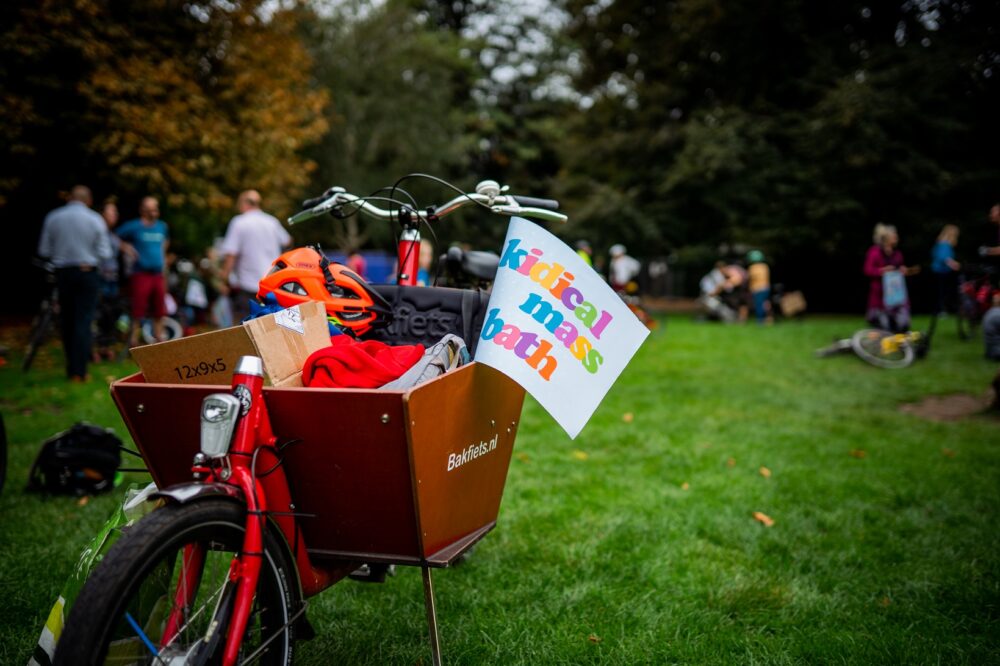
Donate money to make a difference
Join Cycling UK
Cycling UK is a membership organisation working to improve cycling conditions across the UK. Your membership helps fund their campaigning work and will also give you access to member benefits such as an incident helpline and discount on bike insurance.
Learn MoreDonate to Sustrans
Sustrans are the custodians of the National Cycle Network and work to maintain and improve traffic-free paths across the UK. Your donation will help keep these routes open, safe, and accessible for all.
Sustrans also offers volunteering opportunities, including litter picking and cutting back overgrown plants on National Cycle Network routes.
Learn MoreCampaigning takes time - don't give up
Campaigning for change can take a long time, especially when it comes to physical changes like a cycle lane, so don’t give up. Keep writing to people, keep bugging your local councillors, keep speaking at meetings, and keep organising.
School Streets can take years to get accomplished, but once they’re implemented the change will be enormous.
To keep going, you’ll need to find like-minded people - locally or in other towns - so you can support each other and have fun along the way. You can use the diverse skills within a group to get further and achieve more.
Being involved in positive actions like Kidical Mass or a Bike Bus can really help with morale and keep you focused on the end goal.
Small actions add up
Whether you write an email, speak at a meeting, or join a local campaign, your voice matters. Small actions create momentum, and momentum creates change.
Have you campaigned for better cycling infrastructure? Share your experience and tips in the comments for others to follow.
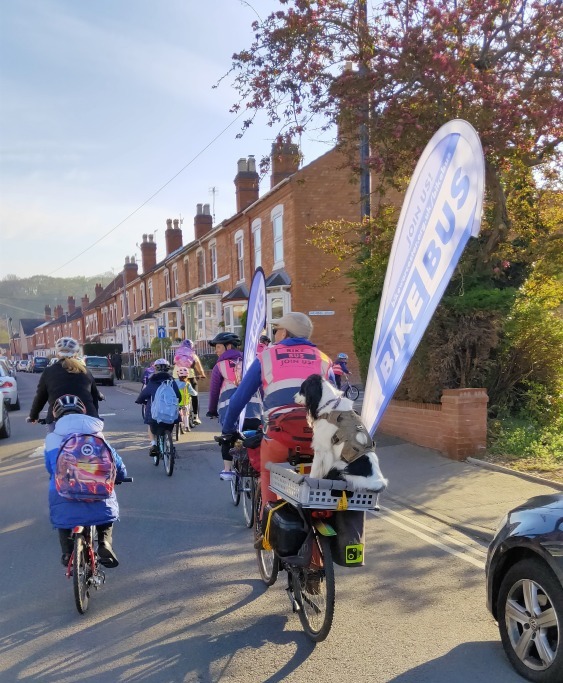
Other articles you might be interested in:
Cycle Sprog's most popular articles
Here at Cycle Sprog we help thousands of families each week find the information they need about kids bikes and cycling together as a family.
We've got hundreds of articles on the website, and we do hope you enjoy browsing them, but if you're in a hurry these are our most popular articles that will get you started.
Winter cycling adventures await!
The temperatures have dropped and the mornings are frosty, but that doesn’t mean family cycling has to go into hibernation. With cosy layers, dependable lights and a bit of forward planning, you can keep riding right through the winter months.
We’ve gathered our best tips and trusted gear recommendations to help you stay warm, dry and visible on every ride — from icy school runs and festive weekend outings to energetic laps at the local park. Winter cycling can be brilliant fun, and we’re here to help you make the most of it!
Our latest articles
Here at Cycle Sprog we're always publishing brilliant new articles, and here's a selection of our newest releases.
The best way to keep up to date with all the latest news, reviews, advice and routes is to sign up for our weekly newsletter.
-
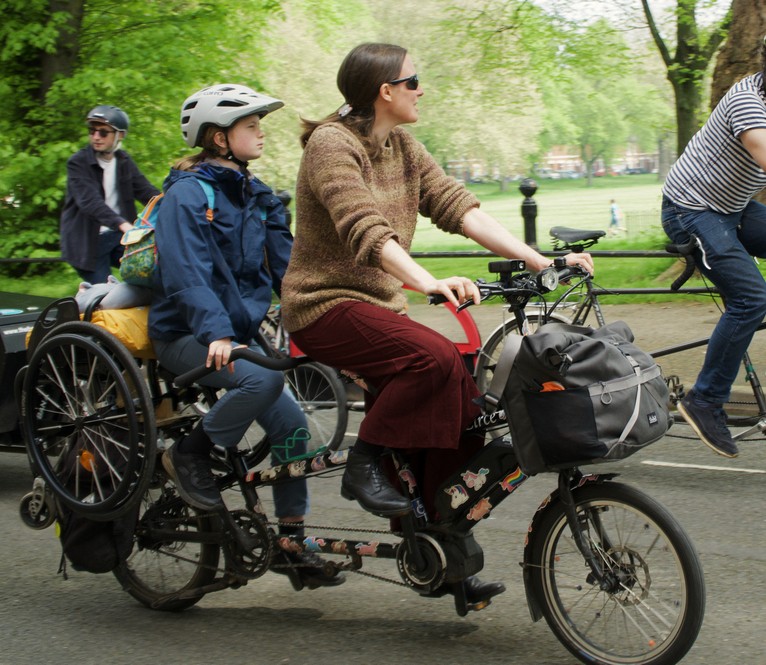 Everyday cycling with teenagers
Everyday cycling with teenagers
-
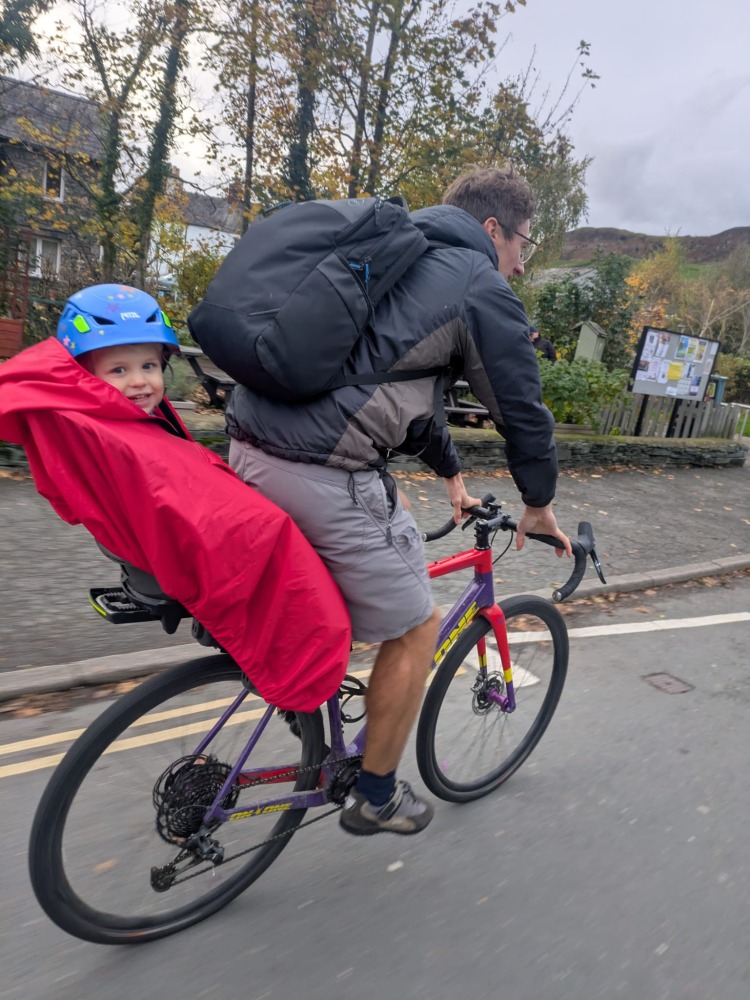 Hamax Bike Seat Rain Poncho Review
Hamax Bike Seat Rain Poncho Review
-
 SPARKY Kids helmet review: Smart safety made fun
SPARKY Kids helmet review: Smart safety made fun
-
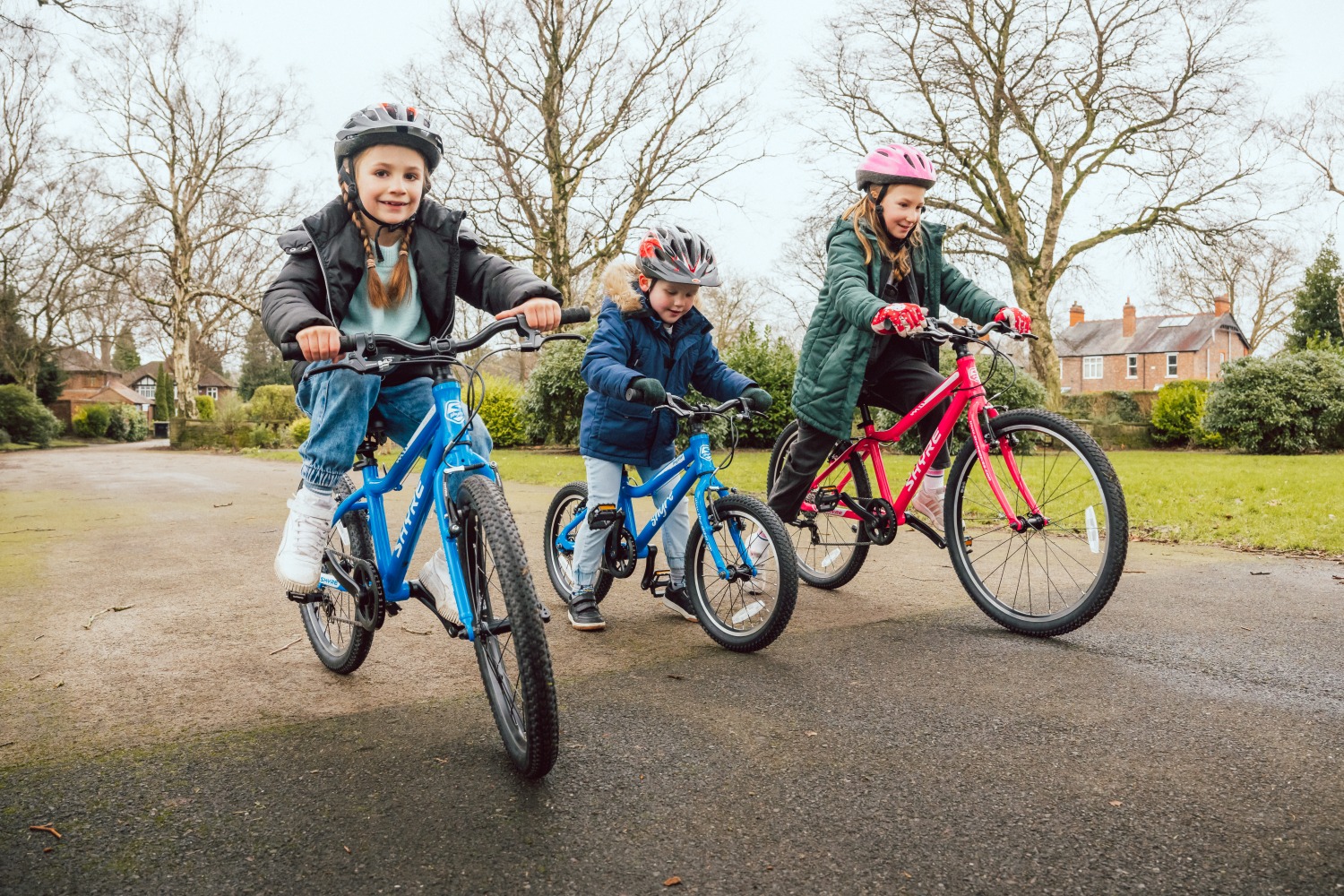 Shyre Bikes range overview: a new kids bike brand built for adventure
Shyre Bikes range overview: a new kids bike brand built for adventure
-
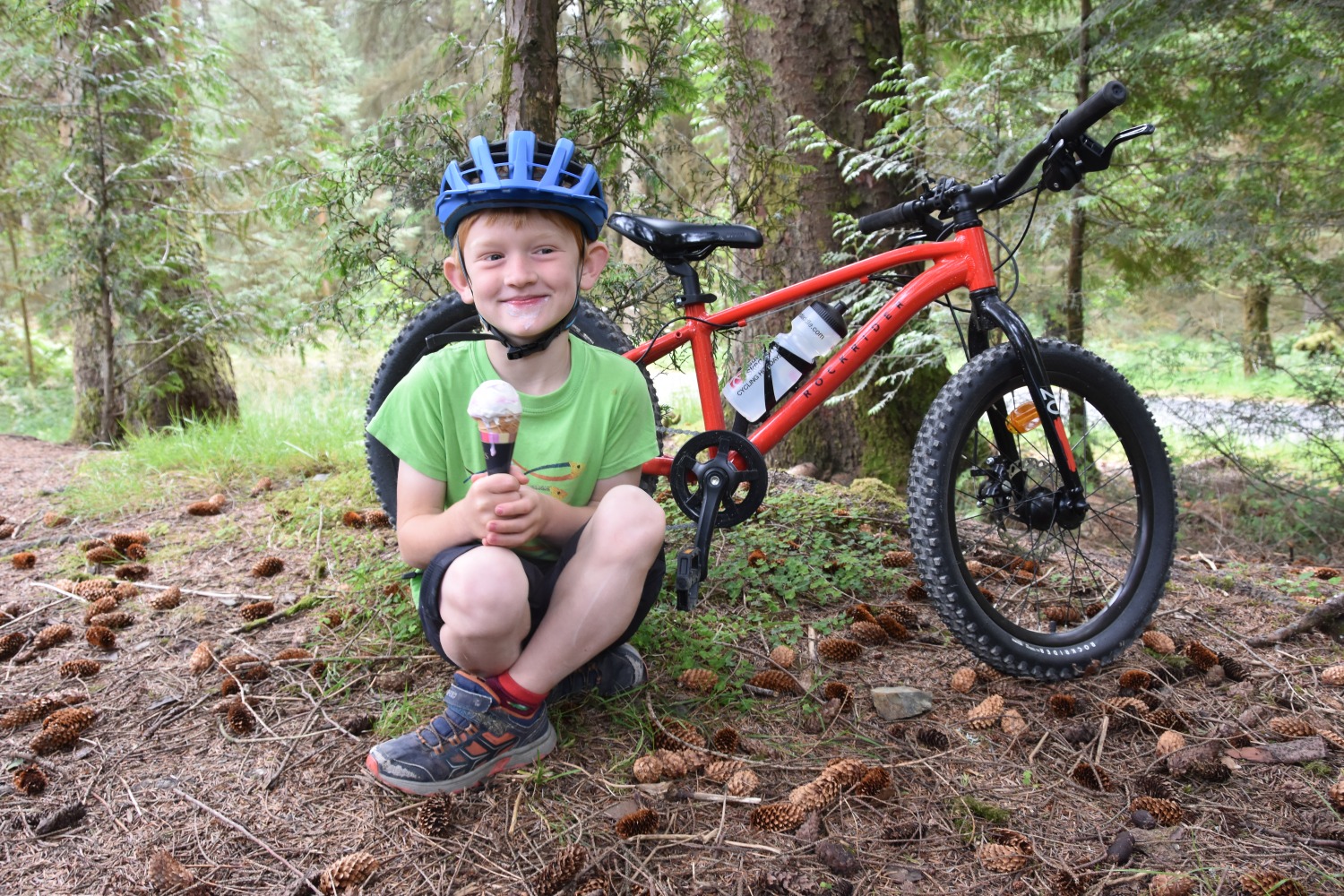 BTWIN 20” EXPL 900R review: Budget kids mountain bike
BTWIN 20” EXPL 900R review: Budget kids mountain bike
-
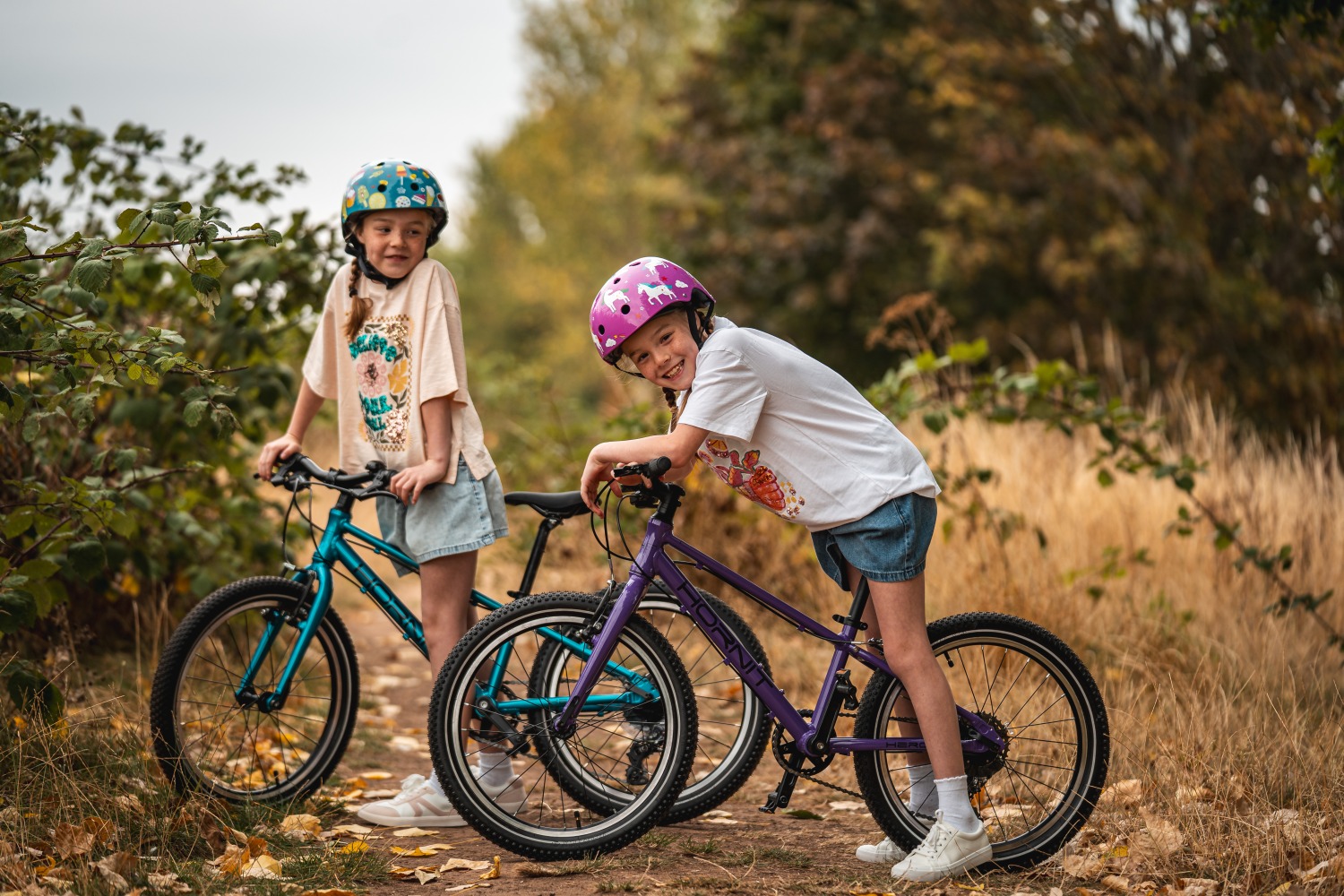 Hornit Bikes brand overview: incredibly well-designed and lightweight kids bikes
Hornit Bikes brand overview: incredibly well-designed and lightweight kids bikes
-
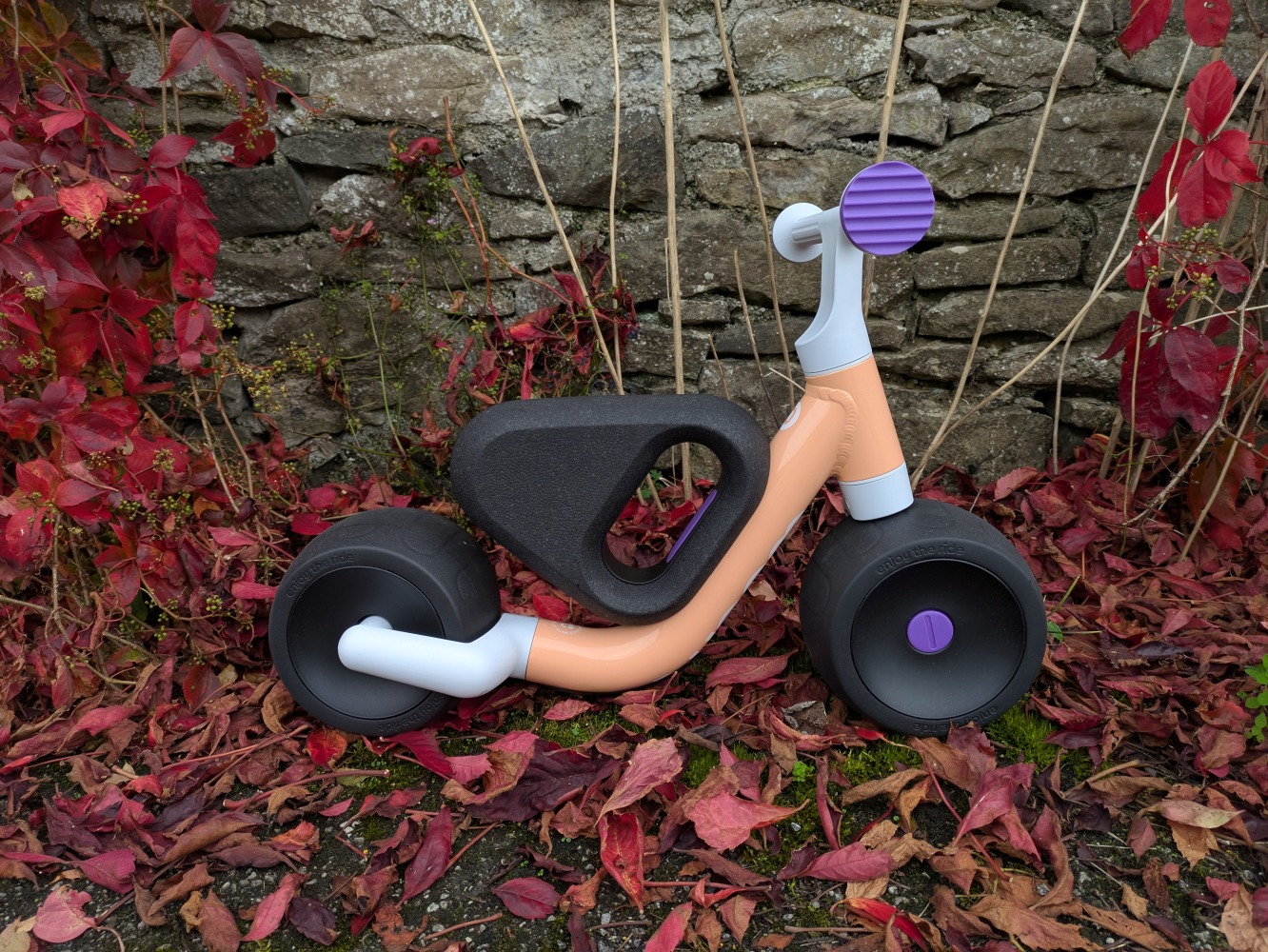 woom WOW first impressions review: the perfect introduction to cycling for your baby!
woom WOW first impressions review: the perfect introduction to cycling for your baby!
-
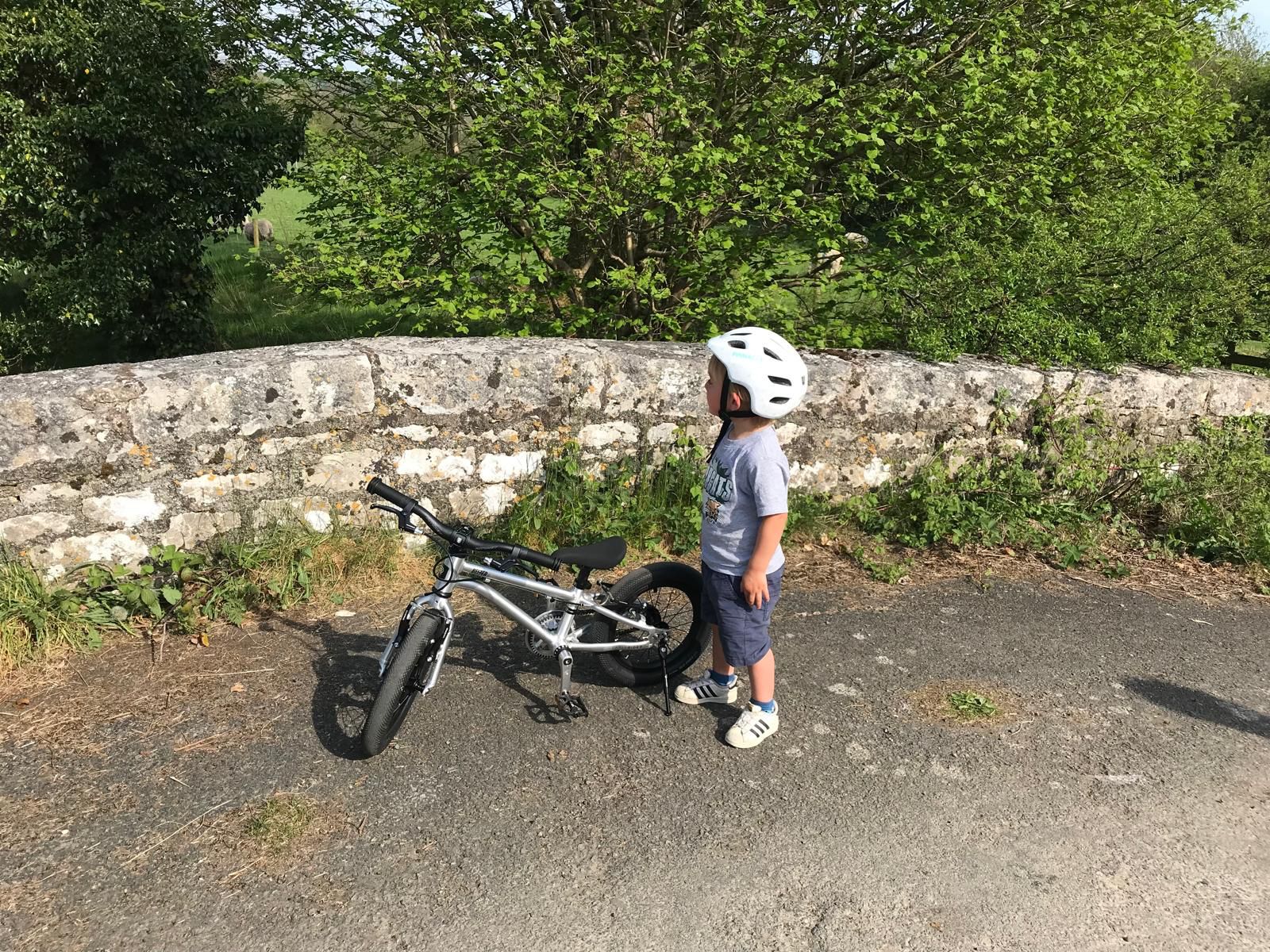 Early Rider Belter 14 review: A premium first pedal bike to inspire little cyclists
Early Rider Belter 14 review: A premium first pedal bike to inspire little cyclists
-
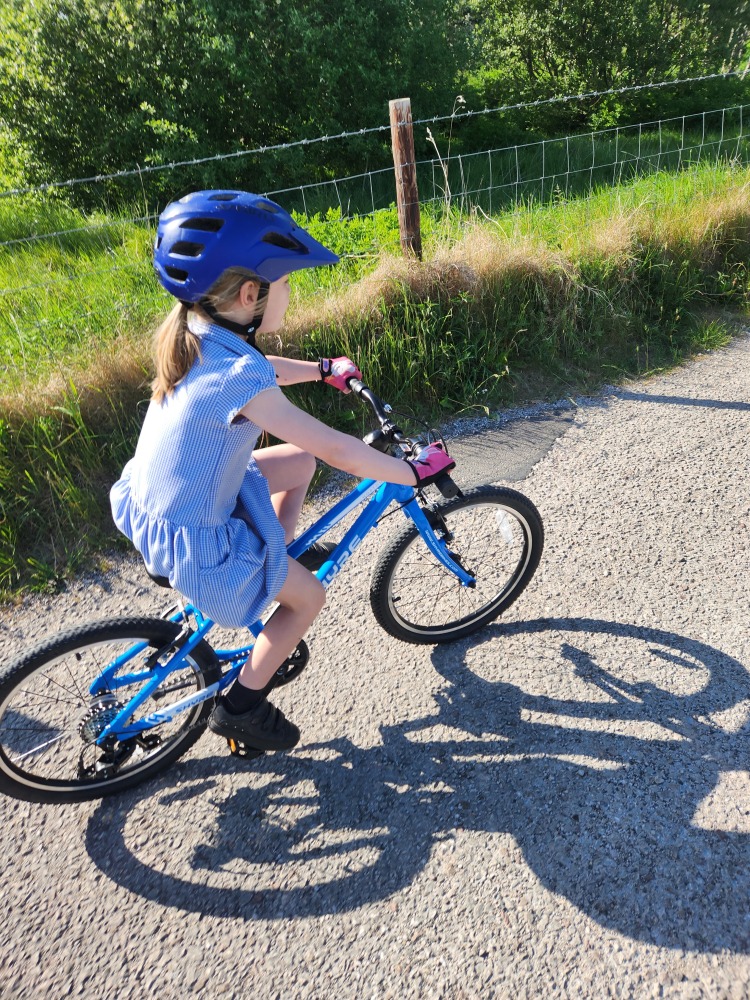 How to teach your child to ride a bike
How to teach your child to ride a bike
-
 SPARKY kids helmet: making safety fun, one ride at a time
SPARKY kids helmet: making safety fun, one ride at a time
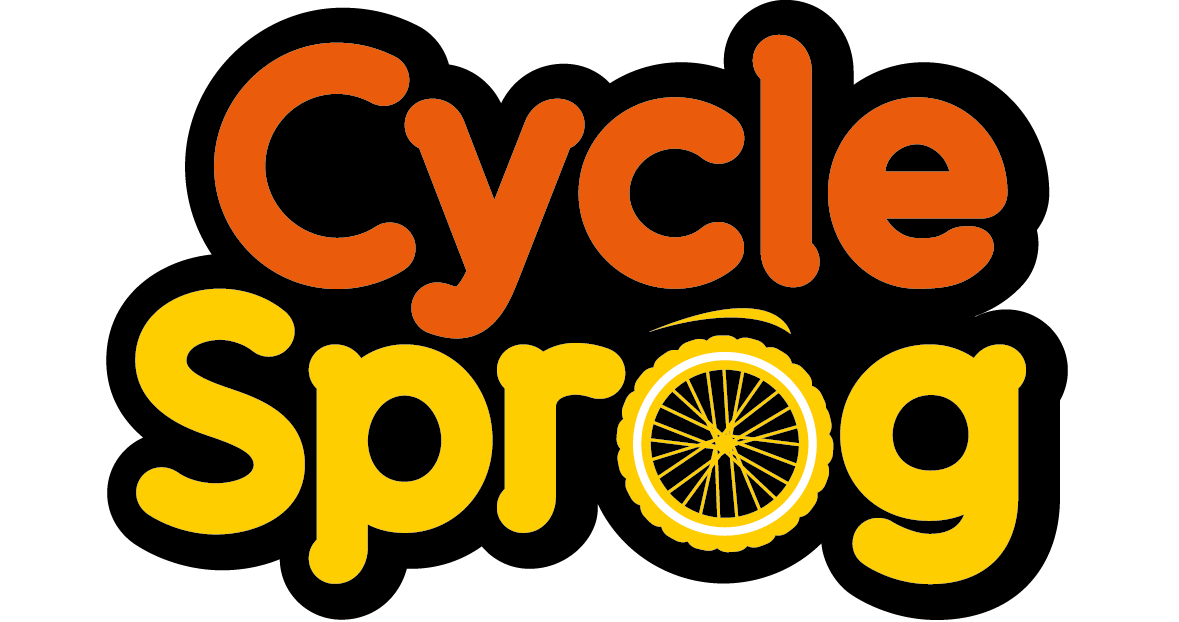
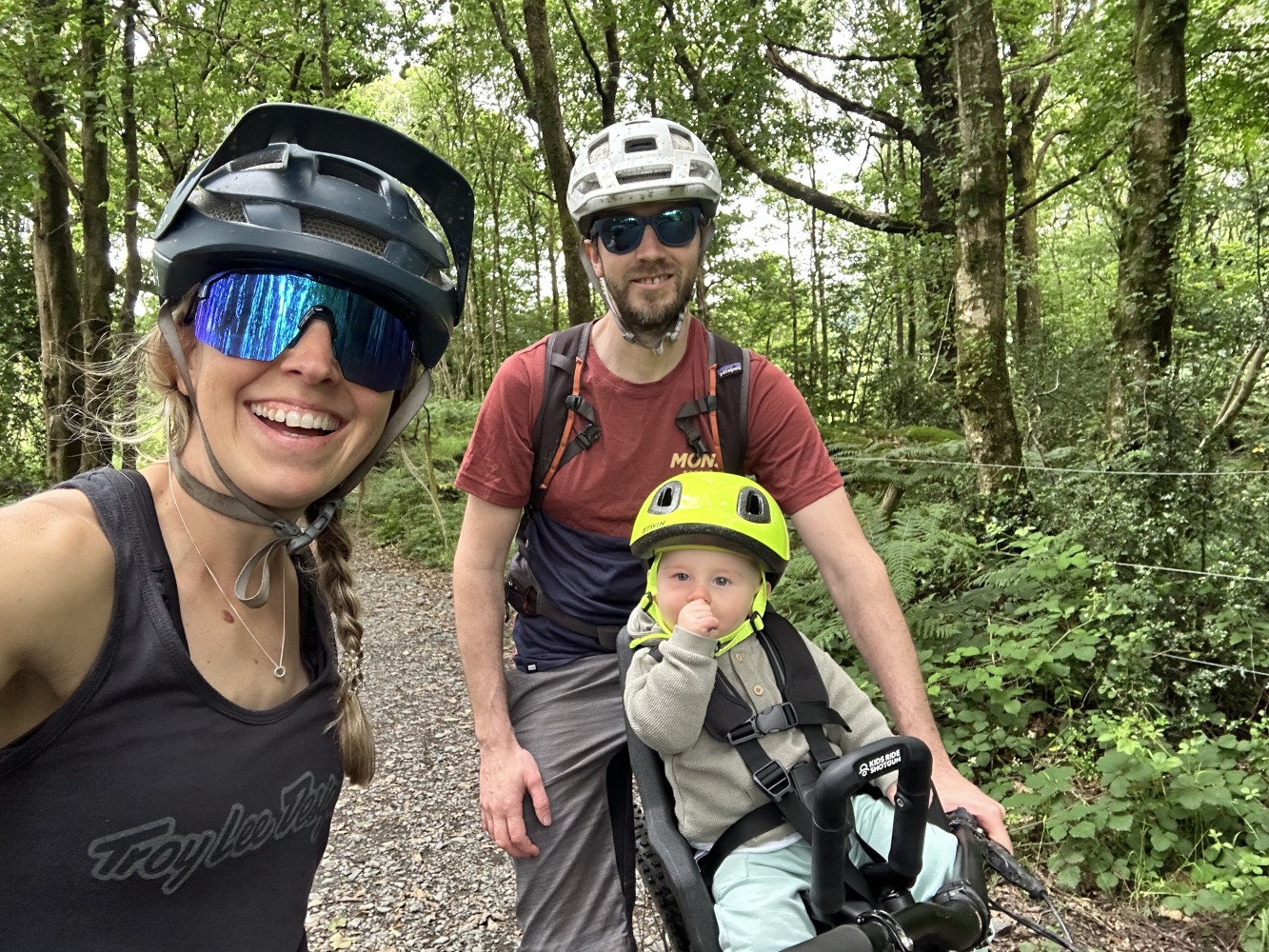
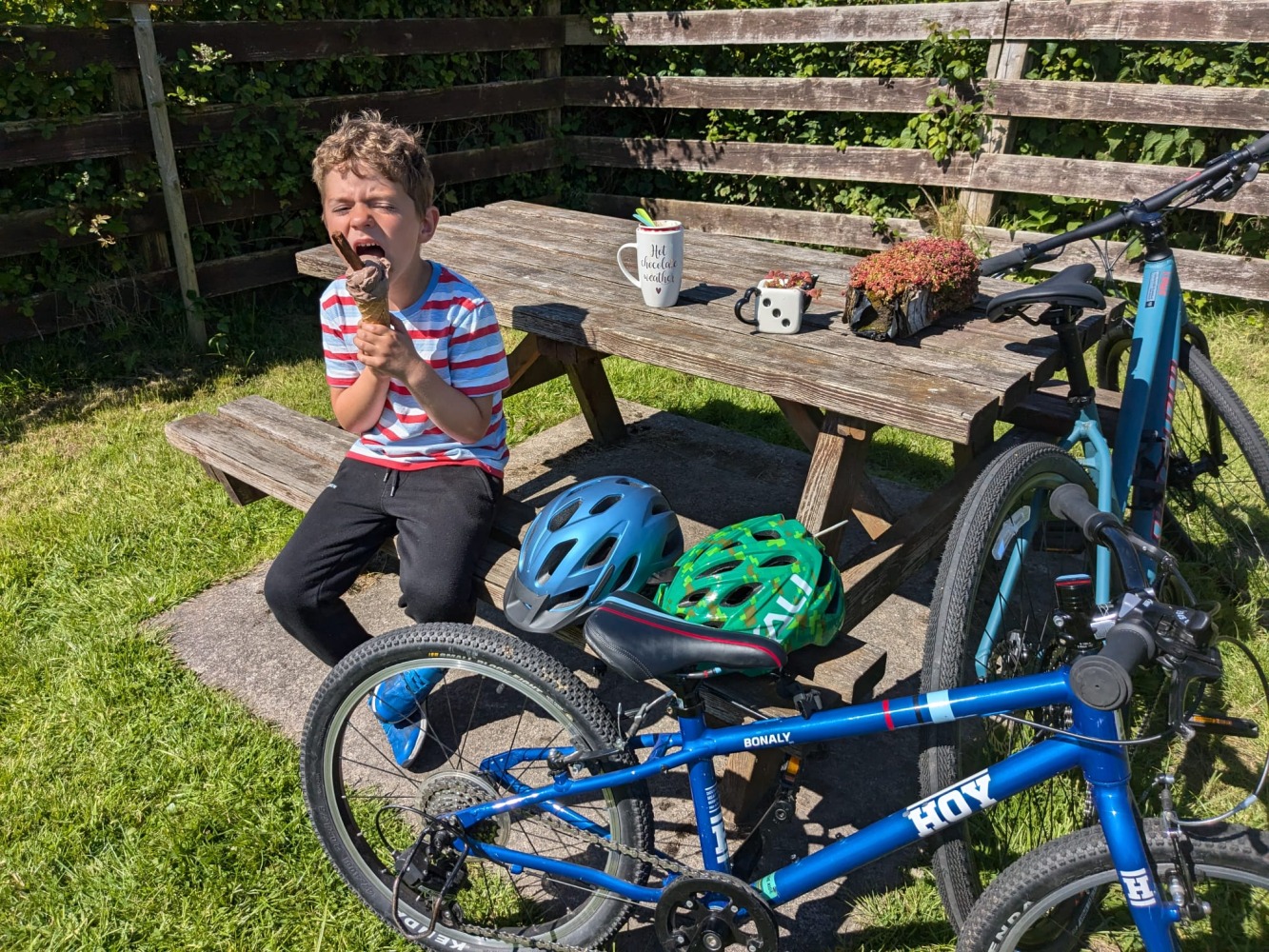

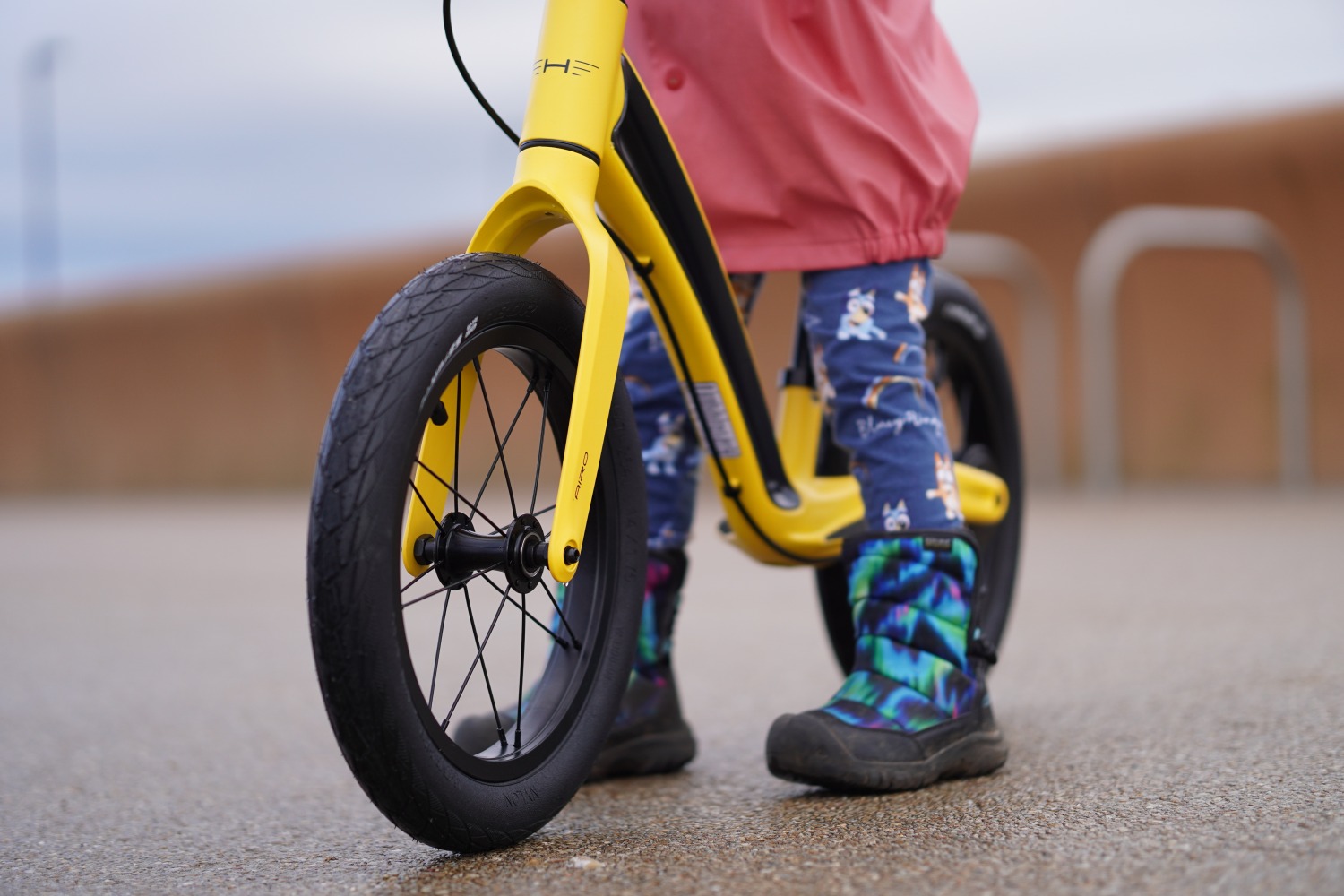
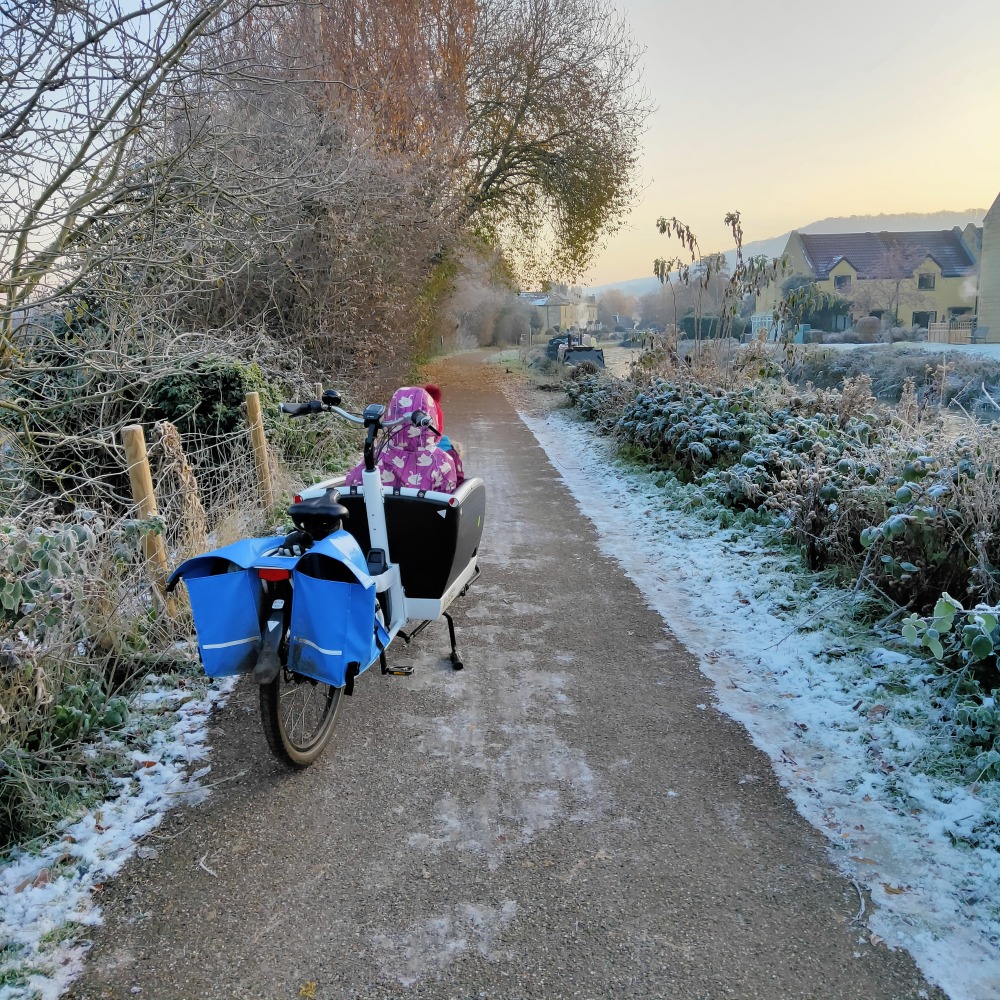
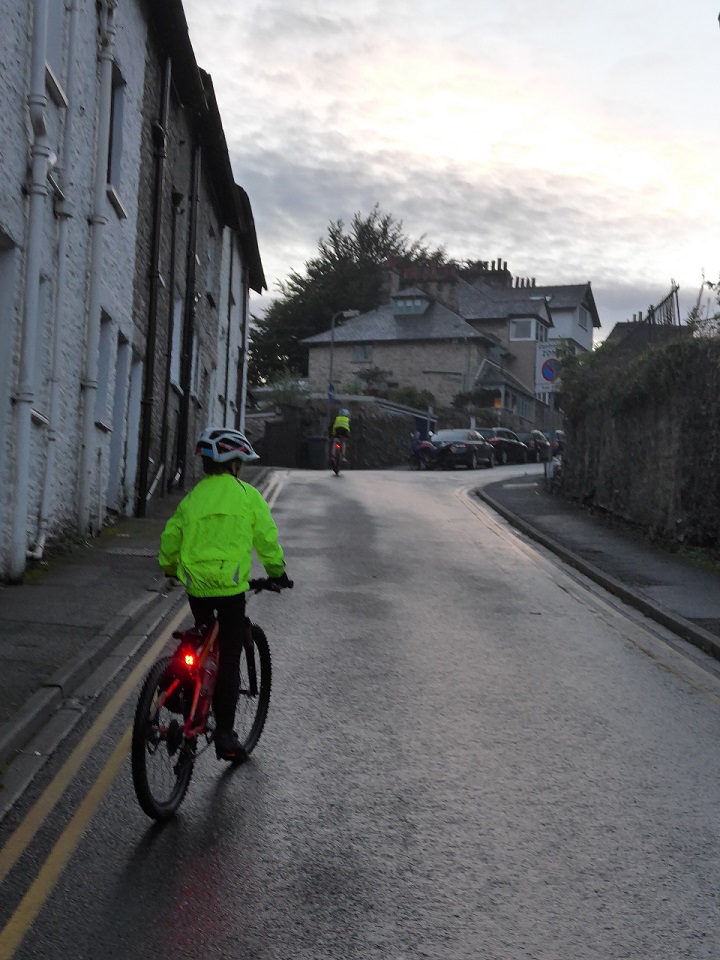
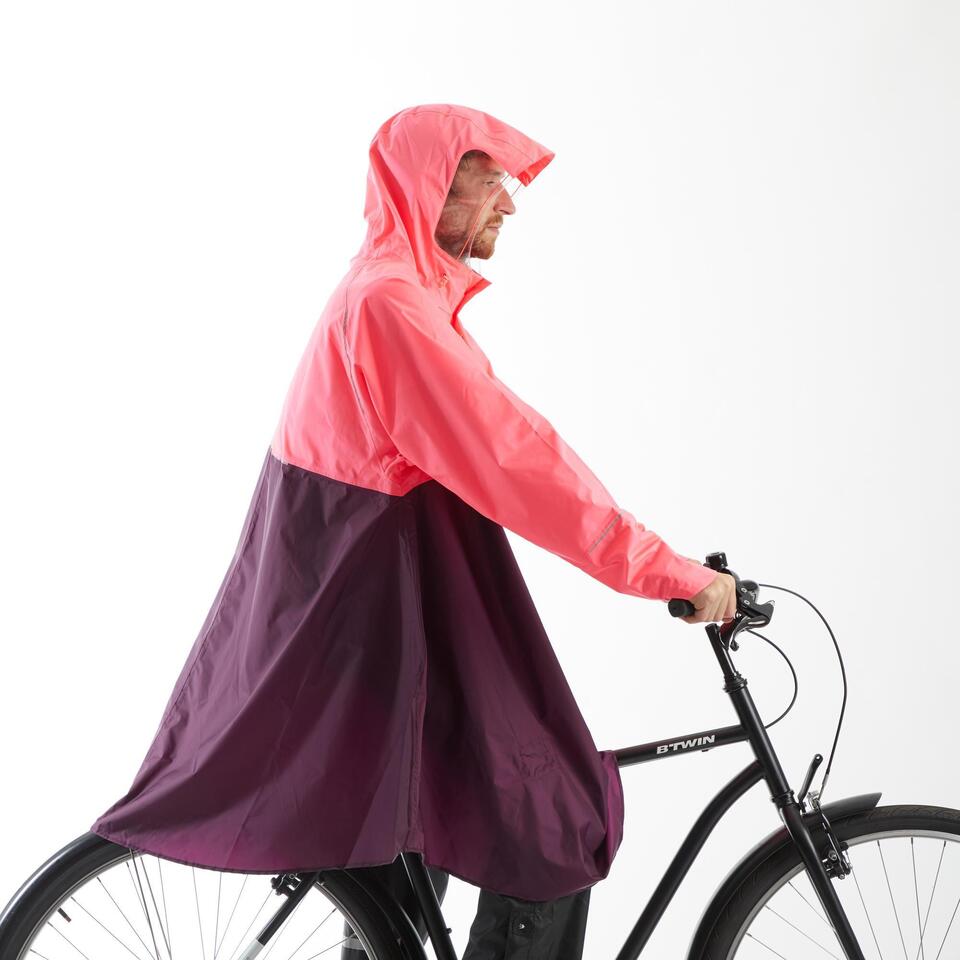
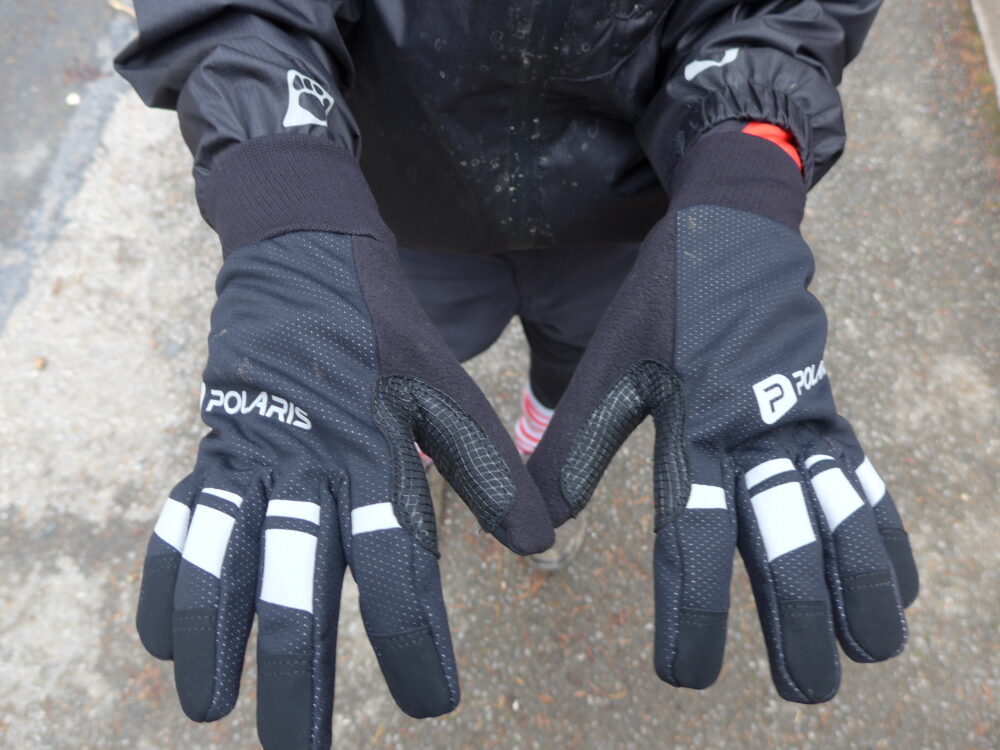
Comments